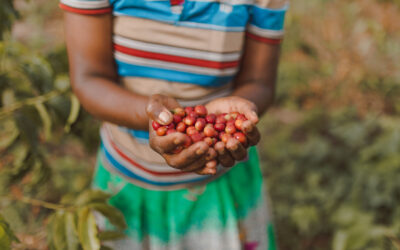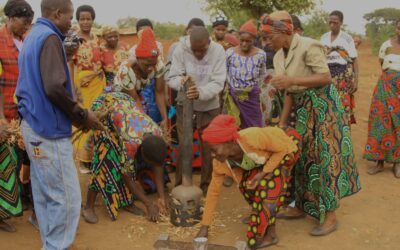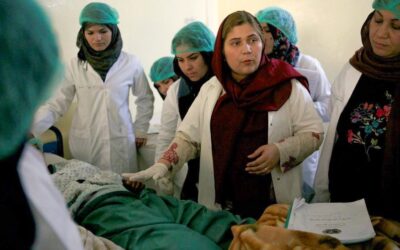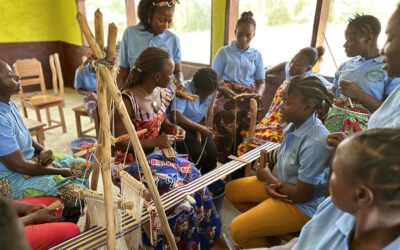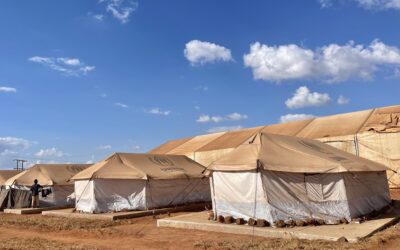Why We Invest in Women
“If you educate a man, you educate an individual. But if you educate a woman, you educate a family.”
On this International Women’s Day, we celebrate the power of women—how their resilience, leadership, and determination transform not just their own lives but entire communities.
But here’s the reality:
Women Are More Likely to Experience Extreme Poverty
Across the world, women are more likely to live in extreme poverty than men, facing systemic barriers that keep them from reaching their full potential.
- Education is out of reach for many. Girls are more likely than boys to be pulled from school due to household responsibilities, early marriage, or cultural expectations. The result? Lost potential. When girls miss out on 12 years of education, it costs the global economy $15 to $30 trillion in lifetime earnings.
- Income opportunities are limited. In 100 countries, laws still prevent women from working in certain jobs. Even when women do work, they are paid less than men—earning, on average, only 80 cents to every dollar earned by men.
Women Face Greater Risks
Poverty isn’t just about income—it’s about vulnerability. And women in extreme poverty face risks that many men do not.
- Violence is a constant threat. Women in poverty are more likely to experience intimate partner violence and gender-based violence—both of which limit their ability to work, thrive, and live safely.
- Trafficking preys on the vulnerable. Women account for the majority of those trafficked for sexual exploitation, a crime that thrives on economic desperation.
- Maternal health is at risk. Women in poverty often lack access to essential healthcare, increasing the likelihood of complications in pregnancy and childbirth—sometimes with fatal consequences.
Women Are Key to Ending Extreme Poverty
Despite these challenges, when women have access to education, jobs, and resources, they drive extraordinary change.
- Women invest in their families. Studies show that women are more likely than men to reinvest their income in healthcare, education, and nutrition—lifting entire households out of poverty.
- Women create opportunities for others. Female entrepreneurs are more likely to hire and mentor other women, creating a ripple effect of economic empowerment.
- Gender equality drives economic growth. If every country progressed toward gender equality at the same rate as the fastest-improving nation, global GDP could increase by up to $12 trillion annually.
Our Commitment to Women
At One Day’s Wages, we believe investing in women is one of the most effective ways to break the cycle of poverty. That’s why we partner with grassroots organizations—often led by women—leaders who understand their communities and are creating real, lasting change.
Today, in honor of International Women’s Day, we invite you to listen to our conversation with Awah Francisca Mbuli, Founder and Executive Director of our partner, Survivors’ Network Cameroon. She’ll be sharing her insights on women’s leadership, economic empowerment, and the power of investing in other women.
More stories of impact
When Generosity Sounds Like a Song: An Invitation to Create Together
At One Day’s Wages, we are endlessly inspired by what happens when people bring their full selves—their creativity, curiosity, and courage—into a shared mission. Our work to alleviate extreme poverty has always been built on partnership. Not just with grassroots...
Ways to Give: Simple, Meaningful Options That Fit Your Life
Generosity isn’t one-size-fits-all. At One Day’s Wages, we believe giving should feel accessible, thoughtful, and aligned with your real life—whether you’re just starting out, raising a family, building a business, or planning your legacy. Here are several ways our...
Starting With Strengths: How Asset-Based Development Can Transform Communities
When people talk about community development, the conversation often begins by listing what’s missing: clean water, farming knowledge, health clinics, and more. And while understanding needs is important, defining communities by their needs can paint them as passive,...
One Day’s Wages Named Together Women Rise 2026 Featured Grantee for Maternal Health Work in Afghanistan
One Day’s Wages (ODW) is honored to announce its selection as the 2026 Featured Grantee of Together Women Rise, a powerful global community of women and allies committed to advancing gender equality. This prestigious award includes a $50,000 grant over two years...
Women at Work: Toward Inclusion in the Global Workforce
Can you remember the last time you couldn’t make it to work? Maybe your nanny canceled, and you were left without childcare. Or maybe your car battery died, and you didn’t have a safe way to get to the office. These are the kinds of barriers that women around the...
Standing in Solidarity When the World Turns Away
We cannot fix every broken system. But we can choose to stand in solidarity with those who cross our path. This choice, this posture of care and action, is what fuels us at One Day’s Wages. And it’s why we need each other, now more than ever. Recently, our Global...
LEARN
Leadership
Transparency
Read the Latest
Contact Us
COLLABORATE
Faith Groups
Schools
Businesses
Get Involved
One Day’s Wages exists to alleviate extreme poverty by investing in, amplifying, and coming alongside locally led organizations in underserved communities.
©2025 One Day's Wages is a registered 501(c)(3) organization | Tax ID #26-2566653 | Privacy policy | Terms of use
P.O. BOX 17575 Seattle, WA 98127 | Contact us


